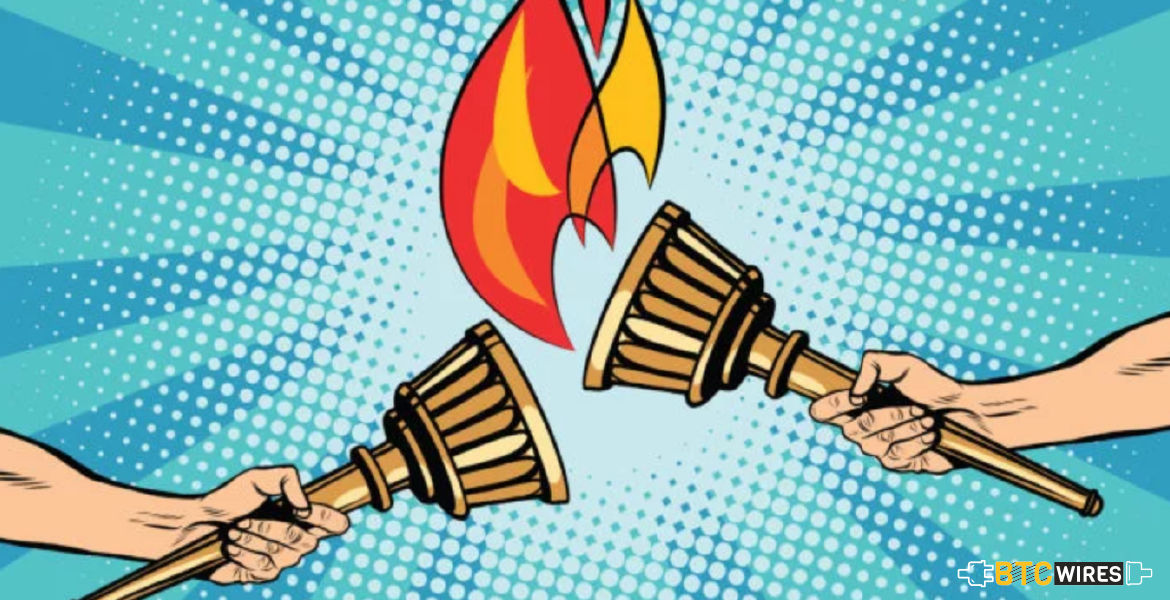Fashioned like the Olympic Torch, the Lightning Torch is traditionally

Fashioned like the Olympic Torch, the Lightning Torch is traditionally passed between members of the Lightning Network community. The Lightning Network is a payment protocol that functions as a second layer atop a blockchain. Many crypto experts have even suggested the lightning network as a fix to bitcoin’s issue with scalability.
The trend of the lightning torch began when Twitter user and Bitcoin (BTC) enthusiast Hodlonaut sent 10,000 satoshis (the smallest, indivisible fractions of a Bitcoin) to another Lightning user, and the user added another 10,000 satoshis and passed it on.
Recently however, in a surprising turn of events, Fidelity Digital Assets, the digital assets sector of Fidelity Investments, became the first investment bank to receive the torch marking the entry into the Bitcoin [BTC] payments realm through the Lightning Network. On 22nd Feb., Fidelity Digital Assets, announced via Twitter that it acquired the Lightning Network [LN] Torch from the Bitcoin maximalist @Wiz. They further posed a question to the cryptocurrency community, asking who should receive the torch next.
The tweet stated:
“We and our research team at the Fidelity Center for Applied Technology have received the #LNTorch from @Wiz. Who should we pass it to? #LNTrustChain”
Fidelity Digital Assets then went on to answer their own question and announced that HBS Blockchain and Cryptocurrency club, a cryptocurrency-centric student club at the Harvard Business School, would be the next recipient of the Lightning Torch due to their focus on the research and development of Bitcoin.
The tweet said:
“We have selected @HBSCryptoClub to receive the #LightningTorch, as they continue to enable #bitcoin research and development. Please send us your invoice for 3.65M sats.”
Launched in mid-October, the digital assets wing of the investment bank, is on its way to launch a crypto-custody solution due to the rise in institutional investors. The launch, which was originally slated for January has been postponed to March, but all seems on track now. They also announced that Bitcoin [BTC] and Ether [ETH], will be the first two cryptocurrencies to receive custody support.
